This site is being reviewed and updated as needed to comply with President Trump's executive orders.
Adult Protective Services Final Rule
On May 7, 2024, the Administration for Community Living (ACL) released a final rule to establish the first federal regulations for adult protective services (APS) programs. The new regulations will take effect on June 7, 2024, but regulated entities have until May 8, 2028 to comply. Additional information can be found at ACL.gov/APSrule.
The APS TARC will provide technical assistance to state APS programs in implementing changes to comply with these regulations. Technical assistance is available at any time. States are encouraged to work with their APS TARC Liaison or to reach out to us using the “Contact Us” form at the bottom of this page.
In addition to working with states, the APS TARC will be providing webinars, hosting interactive peer learning calls, and publishing briefs, blog posts, and toolkits in the coming months on a variety of topics that intersect with the regulations. To stay up to date on the latest education opportunities and publications from the APS TARC, sign up for our email list at http://eepurl.com/gkJzBf.
Key Provisions of the Final Rule
For more complete information, read the brief Final Rule: Establishing Adult Protective Services Regulations.
Highlights of the final rule include:
- Establishes a Common Vocabulary for APS
- Defines terminology such as “adult maltreatment” and its component parts, including “abuse,” “neglect,” “financial exploitation,” and “sexual abuse.”
- Accepting and Responding to Reports
- Requires that states maintain at least two methods of reporting adult maltreatment and self-neglect that are accessible 24 hours per day, seven days per week
- Requires APS to maintain a tiered system of response that differentiates between cases that represent immediate risk (response within 24 hours of screening) and those that do not (response within seven calendar days)
- Conflict of Interest
- Requires APS programs to establish monitoring and oversight procedures to identify conflicts of interest
- Requires APS programs to have mechanisms to identify, remove, and remedy any actual or perceived conflicts of interest
- Establishes requirements for dual relationships
- Person-Directed Practice and Least-restrictive Alternatives
- Requires APS workers to relay to clients their rights under state law
- Requires programs to develop service plans in consultation with the client
- Establishes stronger protections for APS clients subject to, or at risk of, guardianship
- Clarifies that emergency protective action is permitted only as a measure of last resort to protect the life and safety of the client
- Coordination with Other Entities
- Requires APS systems to ensure coordination with other entities engaged in the detection, prevention, investigation, and remediation of adult maltreatment and self-neglect.
- Program Performance Data
- Requires states to submit performance data annually.
- Requires APS systems to retain individual case data obtained from APS investigations for a minimum of five years.
Planning for Implementation
ACL and the APS TARC hosted a webinar on October 17, 2024 that explored effective strategies for planning to implement the APS Final Rule. Featuring two planning worksheets to assist APS programs, this webinar delved into the importance of planning for projects for the 2028 APS Final Rule implementation now. Visit the links below for more information.
- Webinar Recording (October 17, 2024)
- Federal Regulations and State Program Comparison Worksheet (DOCX | 282 KB)
- APS Final Rule Next Steps Worksheet (PDF | 239 KB)
- APS Final Rule Next Steps Worksheet (DOCX | 166 KB)
- Strategy Communicator (XLSX | 41 KB)
Operational Plans
APS Operational Plans (OP) were first required under the American Rescue Plan Act of 2021. Operational Plans are required for Elder Justice Act (EJA) funding through 2028 when State Plan requirements will replace OP requirements. Current OP projects should align with the APS Final Rule and reflect compliance with new federal regulations. Key improvement projects should map to the APS Logic Model (Intake, Investigation, Post Investigation Services and Quality Assurance). Financial information will be submitted in the spend plan and thus will be omitted from the current iteration of the OP. Annual environmental scans are strongly recommended.
Templates for the Operational Plan are provided below along with a toolkit and example form to assist with planning. Additionally, a Federal Regulations and State Program Comparison Worksheet is provided to compare the new federal requirements to your current state program. It includes a detailed list of new federal requirements to help you compare your current APS program statute, rule, policy, etc., area/term by area/term with the new Federal Rule.
- Webinar Recording (June 4, 2024) - Reuse, Renew and Refresh: 2024 Operational Plans
- Operational Plan Toolkit (PDF | 479 KB)
- Operational Plan Template (DOC | 186 KB)
- Operational Plan Example (PDF | 346 KB)
- Federal Regulations and State Program Comparison Worksheet (DOC | 282 KB)
Additional Final Rule Information
- ACL Website - 2024 Final Rule Establishing Adult Protective Services Regulations
- Brief - Final Rule: Establishing Adult Protective Services Regulations (PDF | 527 KB)
- Webinar (May 21, 2024) - APS Regulations: Q & A with ACL
- Federal Register Notice - Adult Protective Services Functions and Grants Programs
Last Modified: 11/14/2024

